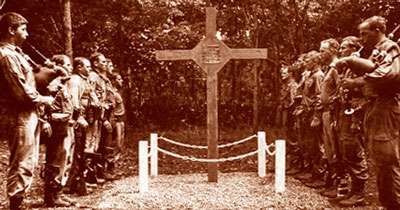Skip Press -- hard-pressed to find a better one!
Skip Press is a cool kat I'd discovered a couple of months ago while trolling around looking to boost my personal library of screenwriting tomes.
I'm that kind of expansive thinker.
I generally like to exhaust an entire store of knowledge about a particular topic before I even dare to address myself as 'Mr. Expert' on anything (even then wisdom is an -- and here's that word again -- organic process). Several of the lessons therein were already known to me back then - yet I still wanted to feast my clutches on Skip's book because it was just so chock-a-block with goodies.
Skip's written several books to his credit. One of them, the superbly but highly-deceptive titled Complete Idiot's Guide to Screenwriting, is a delectable journey down Movie Memory Lane. In it, he takes you from one end of the screenwriter's craft to the other through a snappy and saucy mix of expert film buff views to the art of writing a screenplay to the business of selling a script.
Within them there 250 pages., one carries with them the mighty bible of screenwriters (yes, there have been many claims to the throne, but I'm beginning to learn it's more of a subjective decision, don'tcha think?) -- like the cover says: "...and a reference book for the rest of us."
Skip also runs a little online community deftly called the "Hollywood Hangout."
According to Skip, he'd set it up because he'd wanted a forum for aspiring writers to interact with the sorts of people who could truly help them achieve their chosen craft's goals. Skip found early on that far too often, novice screenwriters would be handing scripts to relatives and friends to read -- for valuable feedback, I'm sure -- though it wouldn't get them anywhere nearer to selling their screenplay. Like Napoleon Hill -- the consummate leadership guru -- said, you have to associate with like-minded success-driven people if you intend on tasting any of success' fruits for yourself. Hello forum.
Sometimes I just go in for a look. Sometimes I post a reply. Other times I just want to read the musings of some of the other talented dudes on that site.
Skip's a guy who just said no to established conventions and took the ol' bull by the horns. He took constructive steps to improve his career, and in so doing, added to the endless pool of knowledge about the wonderful craft we call writing for the movies. And the royalty cheques and offers haven't stopped rolling in since...
And, oh yeah, most importantly...in so doing, Skip's able to stay true to the Hollywood maxim -- you have to also give a little back if you get.
Well at least part of the time.




